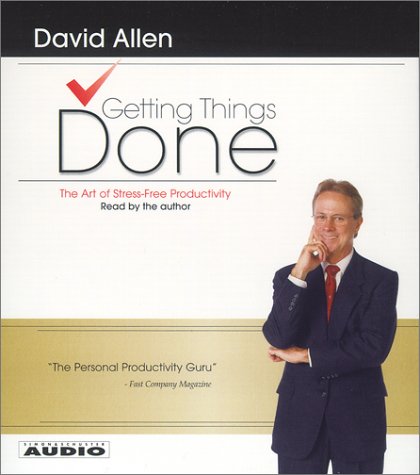
The concept of saving the words for the happy times is about making sure we aren't
inadvertently pouring on negative attention when things aren't going well. When we lecture, yell or explain too much in the moment when things are bumpy, we inadvertently make it more likely that the problem behavior is going to increase over time.
In the first three posts in this series, we discussed
what can be done in the moment when we encounte the misbehavior,
how to circle back afterward, and how to do a
collaborative problem solving session. In part IV we'll now look in some detail at how to use a delayed consequence, and why delaying a consequence, contrary to what many still think, is in fact more effective in most cases than an immediate consequence.
Why We Crank UpAs parents we often ramp up in the moment, when it is least effective, for a lot of good reasons. Let's look at a couple. One of them is simply impulse. As human beings we are wired to more readily notice negative stimuli. When our child is acting up that is what most readily grabs our attention. Annoyance, irritation and even feeling ashamed that our child is acting in such a way can all play into our jumping into the fray.
And when the behavior is either pretty bad, or it's been going on for a long time, we often get that gut sense that something needs to be done right at that moment. Fortunately, this is actually almost never actually the case. Additionally, we often feel compelled to act because we've been taught that the behavior needs to be "nipped in the bud" or even that consequences are only effective when given right in the moment. This was actually the prevailing wisdom of the day for a while, and it turned out, as we'll see, to be just wrong.
The Delayed ConsequenceIt turns out for kids five and older delayed consequences can actually be more effective than coming up with a consequence right at the time of the misbehavior. Before looking at why that is, let's look at an example of how a delayed consequence actually plays out. Jon came home after being at a friend's house after school. He grabbed some chips and planted it in front of the TV. Mom was cooking dinner and the garbage that Jon had agreed would be taken out by last night was full enough that Mom could barely get carrot peeling in there without them rolling off the heap at the top. She asks, "Jon, would you please take care of this garbage?"
"I'll do it after the show, Mom"
She sighs to herself and pauses,"Jon, you agreed you'd have it done last night"
"I know. I'll do it, Mom. I just gonna finish my show first."
Having recently learned about the idea of Saving the Words for the Happy Times, she took nice slow deep breath. She inhibited her impulse to yell and remind him of what his responsibilities are and how little he contributes to the family. Instead she said,
"Don't worry about it. I'll take care of it.""Okay Mom," said Jon distractedly, already absorbed back in his show.
On Saturday, two days later, Jon picked up the envelope containing his allowance, as he was accustomed to doing weekly. Jon's mom had set this allowance ritual up after she'd heard about it in the parenting class she recently attended. The suggestion had been to keep chores and allowance are kept separate—allowance to teach about having money and being broke; and chores so that he would have a sense of contribution in the household. Jon opened his envelope. There were two dollars bills inside. He was used to seeing five dollars. In with the two dollar bills was a note that stated "$5.00 - $3.00 (for non-pre-arranged garbage removal) Balance: $2.00."
"What happened to my allowance?" he yelled. "That's my money!"
"I'm happy to talk about it when you're calm Jon"
"This is stupid!" He strode off to his room and slammed the door.
Mom again resisted the impulse follow and start in on his attitude. After a while he cooled off. He later came out and was able to talk about why she did the chore rather than pleading or cajoling him to do it after the time he'd agreed he would have it done. He wasn't happy about it, but after this interaction, Jon started taking more responsibility for getting his chores done when he'd agreed to.
Another approach rather than saying
"Don't worry, I'll take care of it," is to say
"Would you prefer to take care of that now or hire me to do it?" The key with this whole approach to chores that Jon's mother had already taken care of was 1) to set up chores ahead of time in a collaborative manner where Jon had a say in what he selected for chores out of the available possibilities, and 2) he had a time line on when to get the chores done rather than being told spur of the moment to do them, which none of us usually appreciate. Both of these details on setting up chores raise the odds that the child will be willing to contribute around the house, and make it so the child (at least at some level) realizes that it is fair for the parent to take some action when they aren't choosing to live up to an agreement they had a hand in crafting. And in line with the theme of this series, you can guess that the recommendation on when to do that collaborative setting up of chores is...that's right, at the happy times, not in the moment when things aren't going smoothly, such as when you're upset that they haven't done a chore.
When to Use a Delayed ConsequenceFortunately not all delayed consequences need to be set up like my example with chores above. Often it is much simpler. So how do you know then when a delayed consequence might be appropriate? Well first I recommend that you never need to come up with a consequence right in the moment for any child above five. This can be one of the single biggest gifts you can give to yourself as a parent. Let's look at this from the other end. You know that you
don't need or want a delayed consequence under the following circumstances:
- You've already told the your child what the consequence would be if they did X, and they just did X.
- Collaborative problem solving feels like it would be more appropriate or helpful.
- This is the sort of behavior you can simply redirect, just have the child take a break for, or a timeout seems like it is adequate.
- Your child is four years old or younger (four is approximately the age when children begin to have enough long term memory for a delayed consequence to be effective).
So when something happens that doesn't fall under those categories above, and you sense that a logical consequence (tied to the time and place of the misbehavior as well as possible so as to be meaningful) is in order, then do yourself and your child a favor, and as Charles Fay of the Love and Logic Institute puts it, "Delaaaaaaaaaaay the consequence". Simply mark the event in time by saying something along the lines of
"Oh we're going to need to do something about that. I want to make sure it's fair, so I'm going to give it some thought. I'll get back to you." As we've talked about before, this will be most effective if your tone is warm and friendly, which communicates,
"I'm very much in control of myself, and I can handle your misbehavior without breaking a sweat," which help kids to feel safe, and as we psychological types like to say "contained".
If it is a big event, like your child just broke your front window by hitting a baseball through it, and you've previously discussed saving the baseball playing for the park, then you might want to have your child cool her heels in her room for a bit, which might sound like this,
"Wow Megan, I'm guessing that window was expensive. Why don't you take a bit of time in your room to give this some thought about how you're going to handle this." Again this would be stated with empathy (keeping in mind we all made analogous mistakes when younger) and in a warm tone. When we keep it to this sort of tone, the child can't distract herself with our anger and frustration. When she can't do that the odds go way up that she's going to be able to think about her poor decision and how she plans to handle the problem in a responsible way.
Why Delayed Consequences Rather Than Immediate OnesDelayed consequences are more effective for several reasons. First, we are much less apt as parents to come up with an unfair or overblown consequence that we later might feel compelled to retract. When we do that we lose credibility (though I do have a trick I'll share at a later time for how to minimize the credibility loss). On the other hand, when we enforce an overblown consequence we are being arbitrary, and we lose our kids' respect. Their seeing us as arbitrary breeds resentment. When they resent us, that is sad in and of itself, but beyond this fact, it also makes them want to get us back. So it is far better to steer clear of putting ourselves in a position where these are the options we're left with.
Another reason they are powerful is that the child has time to sit with their poor decision. When we deal out a consequence in the moment even if it is fair the child adjusts to it much more quickly, and they are more apt to have the "I don't care" response to the consequence. When they have time to give it thought for a while before you let them know what the consequence is they are much more apt to see it as fair, and to be able to explore what they might do differently in the future.
When we delay a consequence, kids also have a bit of time to wonder what the logical consequence might be for their behavior. In some sense they end up living through a few different possibilities as they wait. As I see it, this gets you more effect per dosage. In other words, your consequences won't need to be harsh to be effective. On the other hand with punishment or even immediate consequences often the adult has to increasingly dial up the harshness to "get the kid's attention".
It wasn't all that long ago when teachers were taught they had to deal out consequence immediately for it to work. The crucial mistake that had been made was taking findings about how lower animals (often rats and pigeons) learn, and assuming that learning worked precisely the same way with kids. The huge variable that they left out between the stimulus and response was cognition, thinking. And that piece makes all the difference, and accounts for why they were wrong about consequences needing to be immediate. It
is important to let the child know in the moment that you notice the misbehavior, and that something will need to be done. But for all the reasons above, they don't need to have a consequence spelled out until everyone is a bit calmer.
Well this has been a long post, and so I'll wrap up the series here. I'll be sharing some of the ideas I mentioned previously about having the child do a written / drawn plan or using practice as a consequence in future posts.
Hopefully, we've all gotten something about the value of talking less when things aren't going smoothly. We know that isn't natural, and that it is learned skill, but it is one that is certainly worth learning. I'm still learning along with all of you how to do this more often.
What did you most helpful or thought provoking in this series?
If you enjoyed this article please vote for it on Digg, above, or Netscape or one of the other options below. You can also bookmark the site to the right. I appreciate your support.



























